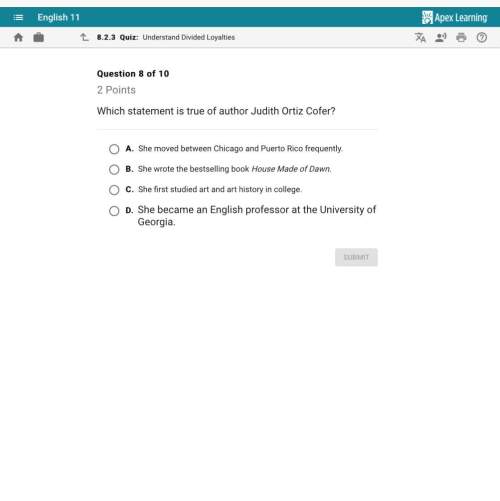Read this excerpt from Levitt and Dubner’s Freakonomics.
The incentive scheme that rules...

English, 24.05.2021 18:40 ityeoboy1727
Read this excerpt from Levitt and Dubner’s Freakonomics.
The incentive scheme that rules sumo is intricate and extraordinarily powerful. Each wrestler maintains a ranking that affects every slice of life; how much money he makes, how large an entourage he carries, how much he gets to eat, sleep, and otherwise take advantage of his success. The sixty-six highest-ranked wrestlers in Japan, comprising the makuuchi and juryo divisions, make up the sumo elite. A wrestler near the top of this elite pyramid may earn millions and is treated like royalty. Any wrestler in the top forty earns at least $170,000 a year. The seventieth-ranked wrestler in Japan, meanwhile, earns only $15,000 a year. Life isn’t very sweet outside the elite. Low-ranked wrestlers must tend to their superiors, preparing their meals and cleaning their quarters and even soaping up their hardest-to-reach body parts. So ranking is everything.
A wrestler’s ranking is based on his performance in the elite tournaments that are held six times a year. Each wrestler has fifteen bouts per tournament, one per day over fifteen consecutive days. If he finishes the tournament with a winning record (eight victories or better), his ranking will rise. If he has a losing record, his ranking falls. If it falls far enough, he is booted from the elite rank entirely. The eighth victory in any tournament is therefore critical, the difference between promotion and demotion; it is roughly four times as valuable in the rankings as the typical victory.
Based on the excerpt, which of the following statements best summarizes the incentive system that ranks sumo wrestlers?
The incentive system penalizes elite sumo wrestlers.
The incentive system rewards elite sumo wrestlers.
The incentive system treats all sumo wrestlers equally.
The incentive system treats all sumo wrestlers like royalty.

Answers: 2


Another question on English

English, 21.06.2019 18:00
In marigolds, what does lizabeth’s parents interaction in the middle of the night mainly reveal about lizabeth’s father?
Answers: 3

English, 22.06.2019 03:40
Read this paragraph from chapter 5 of the prince. there are, for example, the spartans and the romans. the spartans held athens and thebes, establishing there an oligarchy: nevertheless they lost them. the romans, in order to hold capua, carthage, and numantia, dismantled them, and did not lose them. they wished to hold greece as the spartans held it, making it free and permitting its laws, and did not succeed. so to hold it they were compelled to dismantle many cities in the country, for in truth there is no safe way to retain them otherwise than by ruining them. and he who becomes master of a city accustomed to freedom and does not destroy it, may expect to be destroyed by it, for in rebellion it has always the watchword of liberty and its ancient privileges as a rallying point, which neither time nor benefits will ever cause it to forget. and whatever you may do or provide against, they never forget that name or their privileges unless they are disunited or dispersed, but at every chance they immediately rally to them, as pisa after the hundred years she had been held in bondage by the florentines. what idea is stressed in the passage? the desire for liberty the establishment of an oligarchy the dismantling of an acquired state the tendency toward rebellion
Answers: 1

English, 22.06.2019 13:40
Read this sentence from paragraph 4 of the speech. we set up the war-whoop, and dug up the tomahawk; our knives were ready, and the heart of black hawk swelled high in his bosom when he led his warriors to battle. how does black hawk use rhetoric to advance his viewpoint in this excerpt? a-the image of the “war-whoop,” the “tomahawk,” and the “knives” evoke violence, showing that black hawk took pleasure in fighting with the white men. b-the image of how his heart “swelled high in his bosom” evokes a feeling of pride, showing that black hawk believes his actions toward the white men were justified. c-the phrase “dug up the tomahawk” is an allusion to the many indian nations, showing that black hawk felt a kinship to others who had a similar plight. d- the phrase “led his warriors to battle” is an allusion to past wars, showing that black hawk believes war is a universal fact of life.
Answers: 2

English, 22.06.2019 18:00
Which is a complete sentence? a. while i look for my keys. b. even though it is warm without any rain. c. singing the baby a lullaby. d. bicycle racks are set up outside the building.
Answers: 2
You know the right answer?
Questions



Chemistry, 11.01.2021 21:20

Mathematics, 11.01.2021 21:20

Chemistry, 11.01.2021 21:20






Social Studies, 11.01.2021 21:20

History, 11.01.2021 21:20


Mathematics, 11.01.2021 21:20


Mathematics, 11.01.2021 21:20

Mathematics, 11.01.2021 21:20

Chemistry, 11.01.2021 21:20


History, 11.01.2021 21:20




